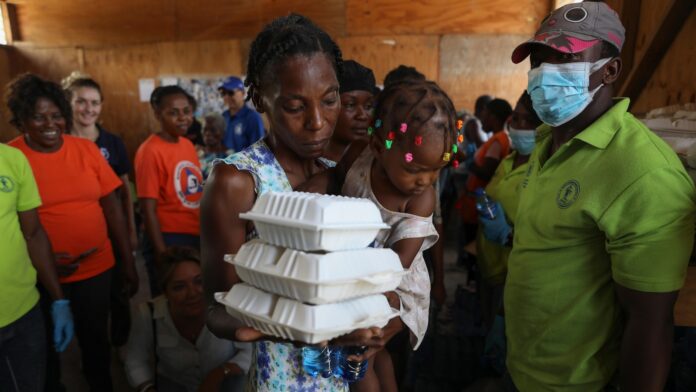PORT-AU-PRINCE, Haiti — No chairs. No blackboards. Not enough toilets.
Schools in Haiti’s capital and beyond are collapsing as gang violence deepens poverty and disrupts basic government services, leaving the public education system facing a $23 million deficit.
“The country needs help,” said Yasmine Sherif, executive director of the UN global fund Education Cannot Wait for education in emergencies and crises.
On Friday, she announced a $2.5 million grant that is expected to help nearly 75,000 children through cash transfers, school meal programs and other initiatives.
Sherif was in Haiti as part of a three-day trip where she visited schools and met with teachers, principals, government officials and members of civil society. She pleaded with the European Union and countries such as France and the US to help close the education gap, noting the impact violence has had on education.
“My biggest concern is safety,” she said.
Gangs have killed or injured more than 2,500 people in the first three months of the year, with violence disrupting life in the capital, Port-au-Prince, and elsewhere.
At least 919 schools remain closed in Port-au-Prince and the central region of Artibonite due to gang violence. The closures have affected more than 150,000 students, the UN said
“Education is part of the solution,” Sherif said. “It would end extreme poverty, extreme violence, create political stability and create a reliable workforce.”
Gang violence has left some 580,000 people homeless in Haiti, with many breaking into makeshift shelters or taking over schools, forcing them to close.
Schools that remain open are increasingly forced to accept students from other institutions that are closed.
For example, the Jean Marie Vincent School in downtown Port-au-Prince has accepted students from about a dozen other schools.
“We are facing enormous challenges,” said Director Charles Luckerno. “We are not alone.”
He said that when classes are over, people made homeless by gang violence come to school en masse and sleep in the yard.
“That also causes very serious hygiene problems,” says Luckerno, who nevertheless lets them stay. “We are human beings. We can’t throw them away.”
Williamson Bissainthe, a 22-year-old high school student preparing for his final exams, lamented the state of some schools.
“Many schools lack desks or chairs. Teachers don’t come on time. The hardest part is that there are no toilets,” he said.
“I hope the generation after me will not have to endure the same suffering,” he said.
For many people in Haiti, private schools are unaffordable. The country has over 11 million inhabitants and more than 60% of the population earns less than 2 dollars a day.
One of the people forced to flee their home is 20-year-old Megane Dumorcy, who is also preparing to graduate.
She would like to become an agricultural engineer, but studying is a challenge.
“The insecurity has had a huge impact on my life,” she said, noting that some students have been forced to leave their backpacks behind to flee gangs. “The state should find a solution for that. We should not live in a country where our freedom of movement is restricted.”
She said her school is only half finished and there is no library, computer room, blackboard and chairs. She does research on her phone when needed.
Another blow to Haitian schools was a program launched by U.S. President Joe Biden’s administration in late 2022 that allows Haitians and people from a handful of other countries to enter the U.S. on humanitarian grounds.
“A lot of teachers have left,” said Frantz Erine, assistant principal of the Jean Marie Vincent School.



